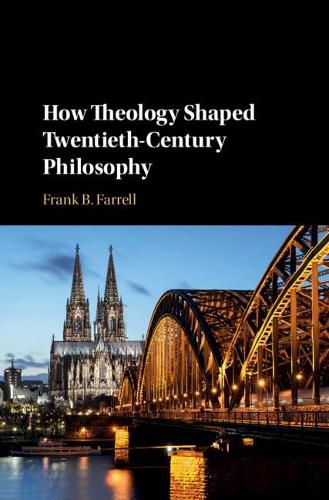Readings Newsletter
Become a Readings Member to make your shopping experience even easier.
Sign in or sign up for free!
You’re not far away from qualifying for FREE standard shipping within Australia
You’ve qualified for FREE standard shipping within Australia
The cart is loading…






Medieval theology had an important influence on later philosophy which is visible in the empiricisms of Russell, Carnap, and Quine. Other thinkers, including McDowell, Kripke, and Dennett, show how we can overcome the distorting effects of that theological ecosystem on our accounts of the nature of reality and our relationship to it. In a different philosophical tradition, Hegel uses a secularized version of Christianity to argue for a kind of human knowledge that overcomes the influences of late-medieval voluntarism, and some twentieth-century thinkers, including Benjamin and Derrida, instead defend a Jewish-influenced notion of the religious sublime. Frank B. Farrell analyzes and connects philosophers of different eras and traditions to show that modern philosophy has developed its practices on a terrain marked out by earlier theological and religious ideas, and considers how different philosophers have both embraced, and tried to escape from, those deep-seated patterns of thought.
$9.00 standard shipping within Australia
FREE standard shipping within Australia for orders over $100.00
Express & International shipping calculated at checkout
Medieval theology had an important influence on later philosophy which is visible in the empiricisms of Russell, Carnap, and Quine. Other thinkers, including McDowell, Kripke, and Dennett, show how we can overcome the distorting effects of that theological ecosystem on our accounts of the nature of reality and our relationship to it. In a different philosophical tradition, Hegel uses a secularized version of Christianity to argue for a kind of human knowledge that overcomes the influences of late-medieval voluntarism, and some twentieth-century thinkers, including Benjamin and Derrida, instead defend a Jewish-influenced notion of the religious sublime. Frank B. Farrell analyzes and connects philosophers of different eras and traditions to show that modern philosophy has developed its practices on a terrain marked out by earlier theological and religious ideas, and considers how different philosophers have both embraced, and tried to escape from, those deep-seated patterns of thought.